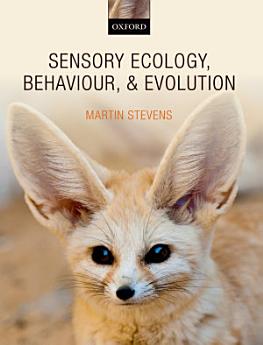Sensory Ecology, Behaviour, and Evolution
feb. 2013 · OUP Oxford
4,0star
O recenziereport
Carte electronică
264
Pagini
family_home
Eligibilă
info
reportEvaluările și recenziile nu sunt verificate Află mai multe
Despre această carte electronică
Throughout their lives animals must complete many tasks, including finding food, avoiding predators, attracting mates, and navigating through a complex and dynamic environment. Consequently, they have evolved a staggering array of sensory organs that are fundamental to survival and reproduction and shape much of their evolution and behaviour. Sensory ecology deals with how animals acquire, process, and use information in their lives, and the sensory systems involved. It investigates the type of information that is gathered by animals, how it is used in a range of behaviours, and the evolution of such traits. It deals with both mechanistic questions (e.g. how sensory receptors capture information from the environment, and how the physical attributes of the environment affect information transmission) and functional questions (e.g. the adaptive significance of the information used by the animal to make a decision). Recent research has dealt more explicitly with how sensory systems are involved with and even drive evolutionary change, including the formation of new species. Sensory Ecology, Behaviour, and Evolution provides a broad introduction to sensory ecology across a wide range of taxonomic groups, covering all the various sensory modalities (e.g. sound, visual, chemical, magnetic, and electric) relating to diverse areas spanning anti-predator strategies, foraging, mate choice, navigation and more, with the aim being to illustrate key principles and differences. This accessible textbook is suitable for senior undergraduates, graduate students, and professional academics taking courses or conducting research in sensory ecology/biology, neuroethology, behavioural and evolutionary ecology, communication, and signalling. It will also be of relevance and use to psychologists interested in sensory information and behaviour.
Evaluări și recenzii
4,0
O recenzie
Despre autor
Martin Stevens is a BBSRC David Phillips Fellow, based in the Centre for Ecology & Conservation, University of Exeter. His research focuses on sensory ecology and behaviour, especially animal coloration and vision, across a wide range of organisms. His work has covered animal colour and spatial vision, anti-predator markings, brood parasitism and cuckoos, and sexual signals and vision in primates. He did his PhD at the University of Bristol on animal camouflage and bird vision, and has published over 40 scientific manuscripts.
Evaluează cartea electronică
Spune-ne ce crezi.
Informații despre lectură
Smartphone-uri și tablete
Instalează aplicația Cărți Google Play pentru Android și iPad/iPhone. Se sincronizează automat cu contul tău și poți să citești online sau offline de oriunde te afli.
Laptopuri și computere
Poți să asculți cărțile audio achiziționate pe Google Play folosind browserul web al computerului.
Dispozitive eReader și alte dispozitive
Ca să citești pe dispozitive pentru citit cărți electronice, cum ar fi eReaderul Kobo, trebuie să descarci un fișier și să îl transferi pe dispozitiv. Urmează instrucțiunile detaliate din Centrul de ajutor pentru a transfera fișiere pe dispozitivele eReader compatibile.






